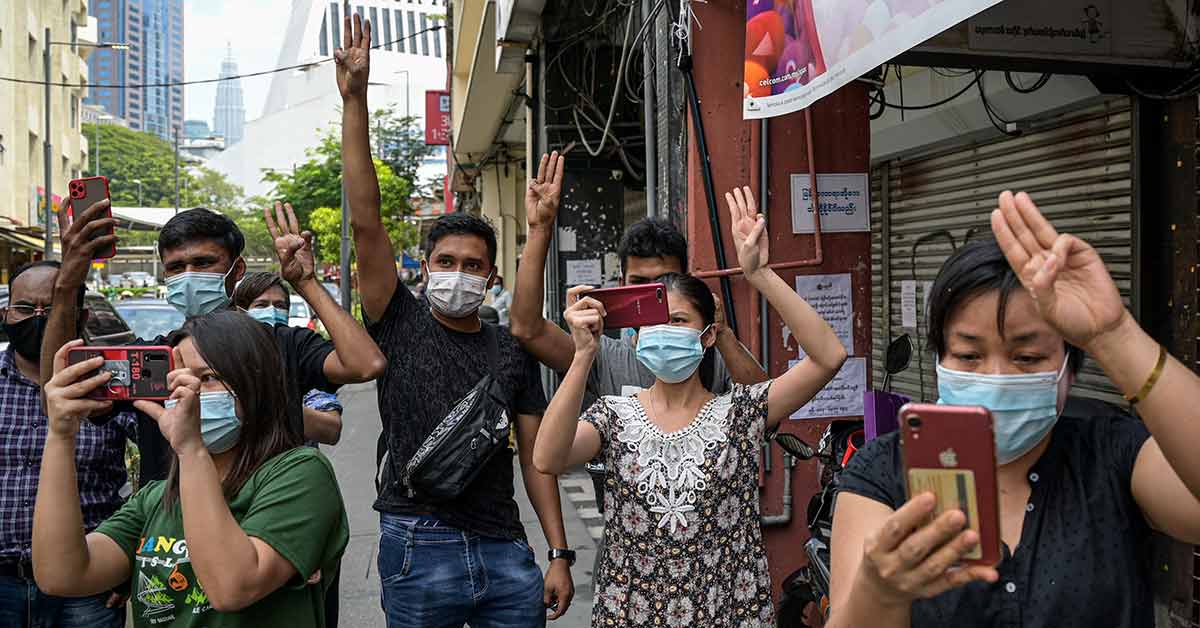Malaysia on Monday defended a plan to deport 1,200 Myanmar nationals on navy ships sent from their homeland just weeks after a coup, following criticism from the United Nations (UN).
News emerged last week the migrants would be sent home, after the Myanmar military seized power and detained civilian leader Aung San Suu Kyi at the start of February.
Malaysian immigration chief Khairul Dzaimee Daud said the detainees, who will be deported on 23 February, are accused of offences including not having valid travel documents and overstaying their visas.
"It is part of our usual programme to deport illegal immigrants held at detention centres," he said in a statement, adding Malaysia sent home over 37,000 foreigners last year.
He said no refugees registered with the UN or members of Myanmar's Rohingya Muslim minority are among those being deported.
Rohingya, who are not recognised as citizens in Myanmar, have long suffered persecution in their mostly Buddhist homeland and hundreds of thousands fled a 2017 military crackdown to neighbouring Bangladesh.
Malaysia is home to about 100,000 registered Rohingya refugees, as well as members of other communities such as the Chin and Kachin.
The United Nations refugee agency said earlier they were seeking information from authorities about the deportations.
But a spokeswoman added that since late 2019 they had been blocked them from accessing immigration detention centres, meaning they could not determine who should be accorded refugee status.
Vulnerable people, including women and children, are among those held in the facilities, she said.
"If found to be in need of international protection, these individuals should not be deported to a situation where their lives or freedoms may be at risk," the spokeswoman said.
Malaysian authorities were last year criticised for detaining undocumented migrants in a bid to prevent the spread of the coronavirus.
Malaysia is home to millions of migrants from poorer parts of Asia who work in low-pay jobs such as construction. As well as Myanmar, they come from countries including Bangladesh and Indonesia. - AFP
